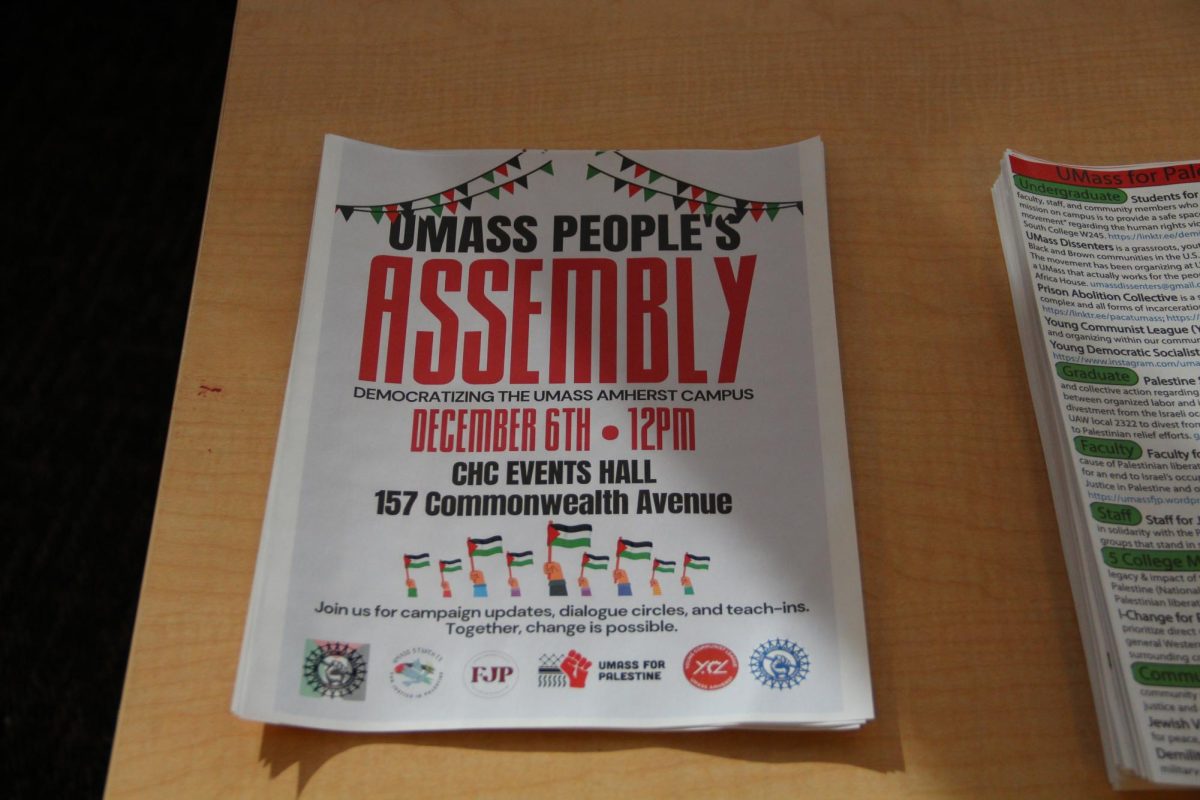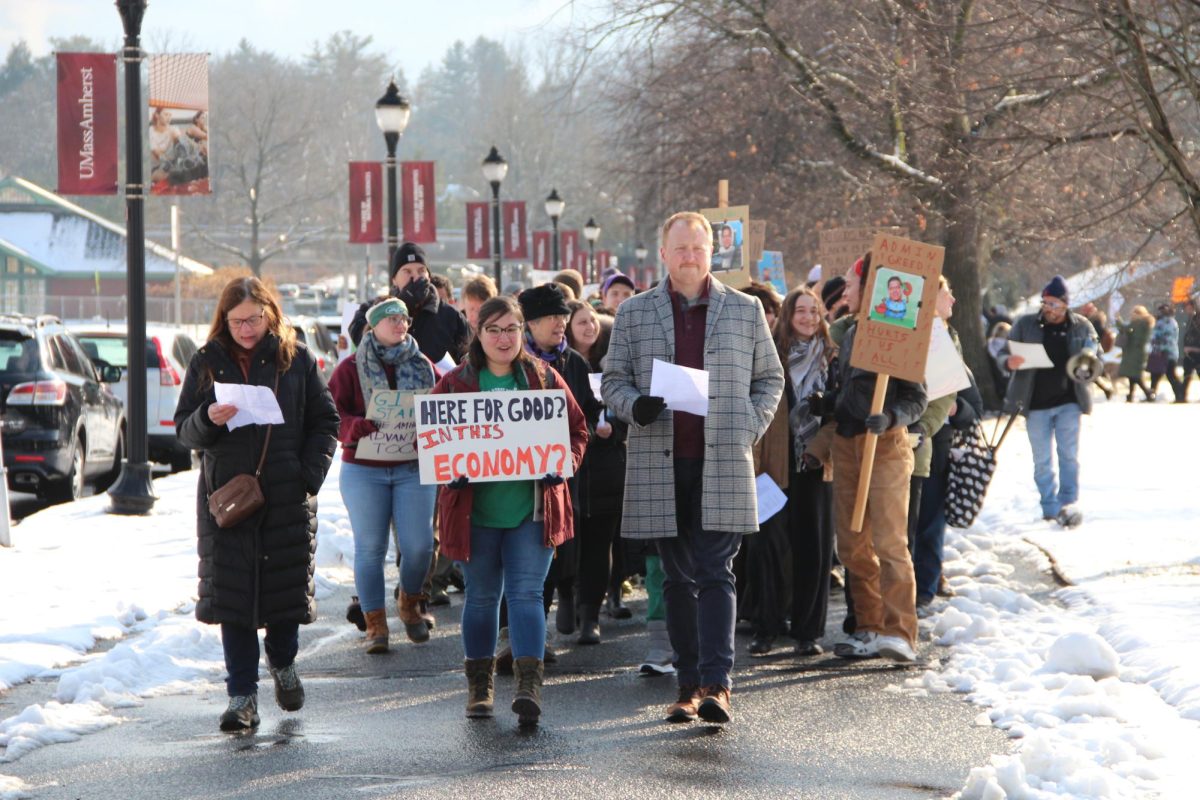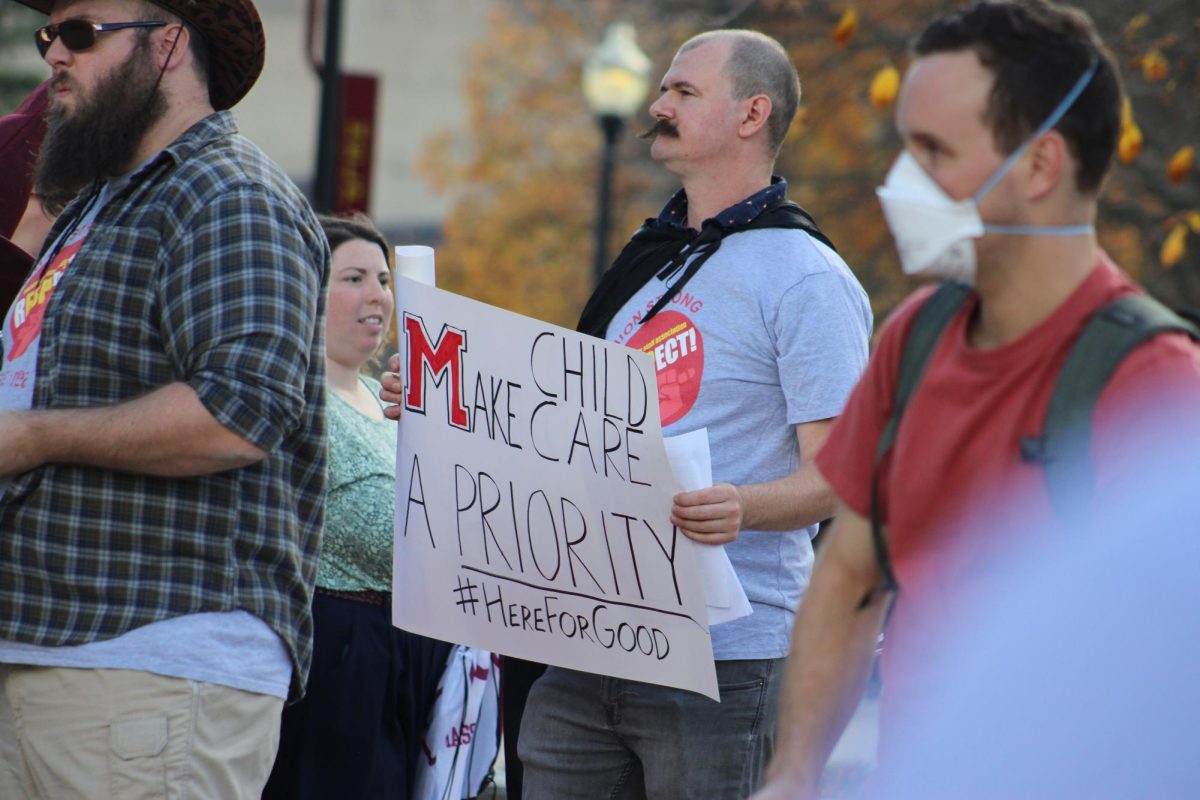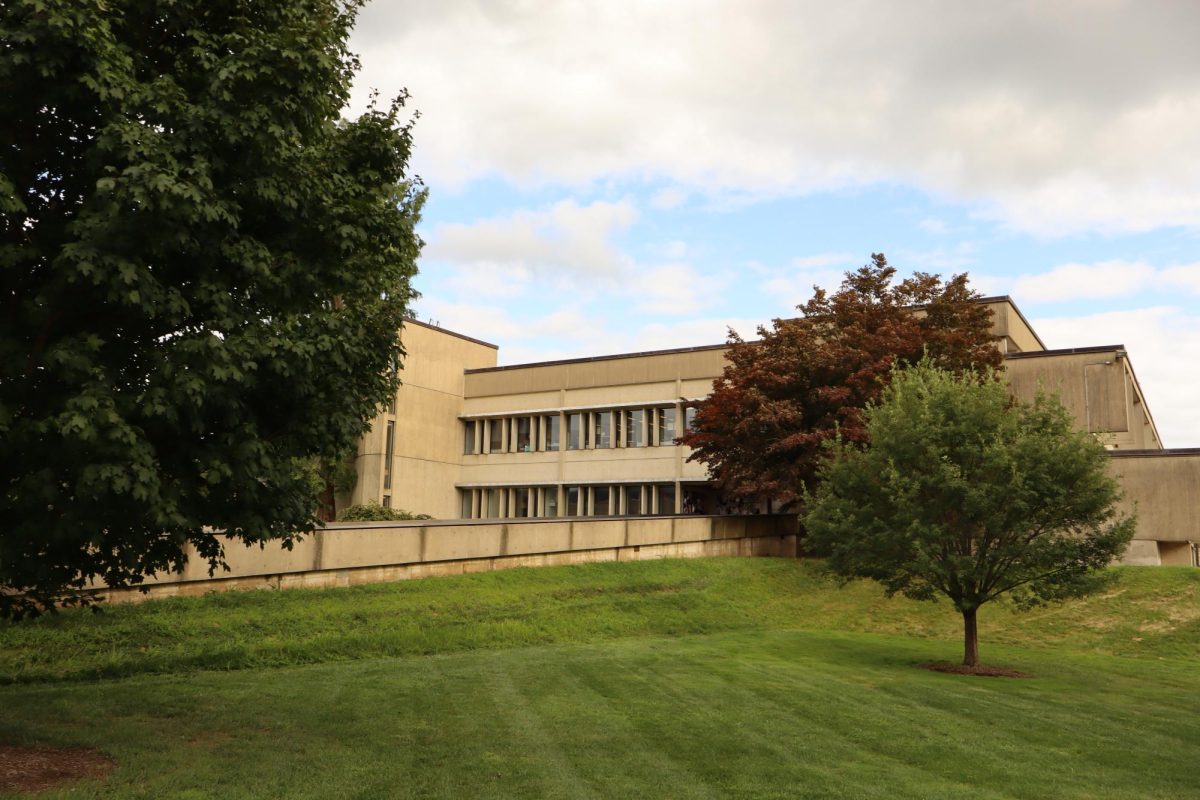On Dec. 6, over 50 people attended the University of Massachusetts Amherst People’s Assembly held at the Commonwealth Honors College Events Hall. Students, faculty and community members discussed unionizing, solidarity and future goals.
UMass Amherst Students for Justice in Palestine (SJP), UMass Amherst Faculty for Justice in Palestine (FJP), UMass Graduate Employees Organizations United Auto Workers union (GEO UAW2322), UMass GEO Palestine Solidarity Caucus (GEO PSC) and the UMass Amherst Young Communist League (YCL) announced their collaboration for the event on Instagram.
UMass for Palestine Coalition further includes the Young Democratic Socialists of America, Prison Abolition Collective and UMass Dissenters. Guest organizers such as the Professional Staff Union (PSU), University Staff Association (USA) and Massachusetts Society of Professors (MSP) were acknowledged.
The last people’s assembly occurred in May 2024, after students organized an encampment on the Student Union South Lawn. The encampment was taken down after administration members cited land-use violations and brought in police officers.
In a presentation hosted by Samar Haddad, a junior sociology major and member of SJP, Haddad said that the coalition is working to create a “campus-wide solidarity movement, which rejects and challenges our university’s connection to the military-industrial complex, war profiteers, genocide and capitalist imperialism.”
“We are here today because we believe that the crises facing students and workers are two sides of the same coin,” Haddad said. “Our goal in terms of organizing this assembly is to build solidarity networks and make UMass a more equitable and sustainable environment for all.”
Throughout the presentation, Haddad encouraged people to become involved with events to support the coalition’s demands saying, “we need your input to democratize our campus and make UMass a better place for students, staff and faculty.”
The assembly went on to reflect on statistics of people killed, injured or missing over the past 14 months in Gaza, the occupied West Bank and Lebanon. According to live updates from Al Jazeera, at least 44,708 people, including 17,492 children were killed in Gaza with more than 106,050 people injured and more than 11,000 people missing. In the occupied West Bank, at least 807 people, including at least 169 children were killed while more than 6,250 people were injured. In Israel, at least 1,139 people were killed while at least 8,730 were injured.
Haddad further reported on the damaged infrastructure in Gaza, with statistics from the United Nations Office for the Coordination of Humanitarian Affairs, stating that there is damage to 80 percent of commercial facilities, 87 percent of school buildings, 68 percent of road networks, 68 percent of cropland and 17 of 36 hospitals in the Gaza Strip are partially functional.
Kivlighan de Montebello, sophomore social thought and political economy and sustainable community development major and member of SJP, played videos of what life is like for those in Gaza. Many videos showed people working to grow crops and help others who were also struggling.
“It’s really important to acknowledge [what] all of these people are going through every day,” de Montebello said. “There’s so many levels to this genocide and so many ways in which people are resisting … All of these little forms of resistance are the only hope for Palestinians and for their liberation is through their resistance on the ground.”
Eric Ross, a member of PSC and a doctoral student in the history department, spoke of the graduate students “unique position” as students and union members, allowing them “to expose the intersections between our labor, research and militarism.”
Ross said that students in STEM fields consistently work on projects tied to military technology, whether directly or indirectly through funding from the university. He further said that those students “deserve to know how their labor is used and have a say in this application.”
“We demand that our work and our university divest from militarism,” Ross said. “Demanding accountability from this university has been an infuriating uphill battle,” so Ross said students, faculty and staff “must stand united in our demands and strategic in our actions.”
FJP members Cedric de Leon, a professor of sociology and labor studies, and Marianna Ritchey, an associate professor of music history, spoke on the demands that UMass FJP have.
They emphasized their demands for the university to cease its violation of their contractual and First Amendment rights in order “to fulfill its duty to uphold and defend academic freedom.” They further called upon labor and management to make disclosure and divestment from military and surveillance firms subjects of collective bargaining.

Tatiana Rodriguez, a chairperson of the Palestine Solidarity Caucus introduced the next part of the assembly, in which participants were encouraged to “engage in meaningful dialogue” and “go out of your way” to make discussions with each other.
“Building community can sometimes be uncomfortable,” Rodriguez said. “What we’re trying to do is break out of our bubbles, break out of our social circles, and to do the networking, that we talk about doing all of the time, and make this place, I guess, more community oriented.”
The first discussion session asked participants to think and share their thoughts on questions such as, “As a collective what strategies should we be using to pressure the administration to disclose all university funding, and divest from war profiteers and apartheid institutions?”
Some participants shared their thoughts after the session, including anthropology doctoral student Marybelle Issa, who said her group “talked about things that we can do on an everyday basis, and ultimately, the thing that we came up with is that everything that we do should be collective, should be cooperative.”
Will Chaney, an economic graduate student, said, “We went into [the] discussion kind of, like, individual action is never going to be enough … We have to have our daily lives transformed, but they also have to be done with collective action.”
“If we do not … support each other, for example, by doing a boycott, then it’s [going to] fail, because boycotts are really difficult, right, and they would require restructuring, right?,” Chaney said. “And that’s true for any collective action.”
“Our collective actions should, and our strategies should force UMass to take material losses,” Chaney added.
Speakers focused on the need for democratic spaces and the importance of working together – specifically about the need for unions and undergraduate organizations across UMass and Western Massachusetts to collaborate to achieve common goals.
“History shows us that when workers develop a political consciousness, we’re able to rise up together and confront those in power to make great changes,” Madison Albano, a history graduate student and Co-Chair of the Graduate Employee Organization at UMass, said.
Albano pointed out that the number of unionized graduate students has grown 133 percent from 2012 to 2024. Nationally, 38 percent of graduate students are unionized.
“It’s our responsibility as workers to talk to our coworkers, our neighbors, build up our union and mobilize all segments of the working class in our collective fight against capitalism,” Albano said. “This is really large, long, hard work, but it’s work that I’m happy to engage with alongside so many dedicated comrades like some of you folks in this room.”
Several PSU members spoke, including Hannah Bernhard, the program manager for Student Success Communication at UMass.
“We want to create and support equal aid networks to protect community members from persecution and create support networks, not only to withstand the new incoming administration but also the fascism that is here on campus and has been here for a long time,” Bernhard said.
PSU member Santiago Vidales, an academic advisor in the College of Information and Computer Sciences, elaborated on the goals and ideas behind PSU.
“We are the founding members slash steering committee of the of the solidarity caucus, trying to do a couple of things,” Vidales said. “We are all outraged by what is happening in Palestine, also outraged by what the university has been doing to its own students, but also to a certain degree, energized by that very student movement.”
“We’re all very thankful and grateful to be able to participate in the People’s Assembly,” Vidales said. “To be in solidarity, to be in community with students, faculty, community members, and hopefully be able to provide a staff voice to our virgin groups.”
The event concluded with a teach-in focusing on boycotting, student solidarity and organizing, presented by UMass Professors and Staff.
“Thank you guys for being a part of this lovely People’s Assembly,” Haddad said. “There’s a lot more work to be done, and I’m glad we’re all willing to put the work in.”
Alexandra Hill can be reached at [email protected]. Kalina Kornacki can be reached at [email protected] or followed on X (formerly Twitter) @KalinaKornacki.





















